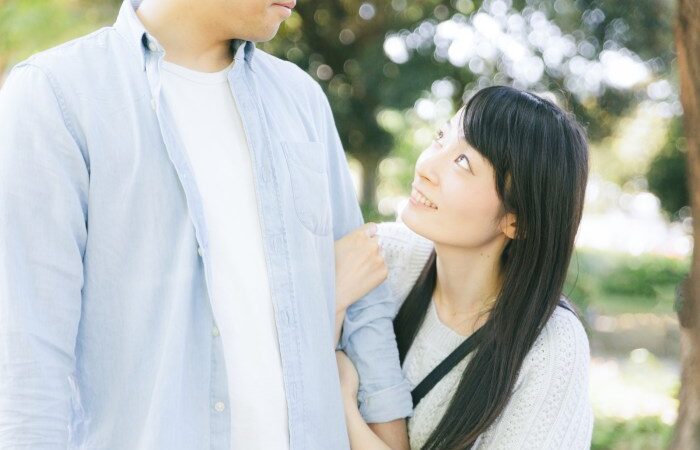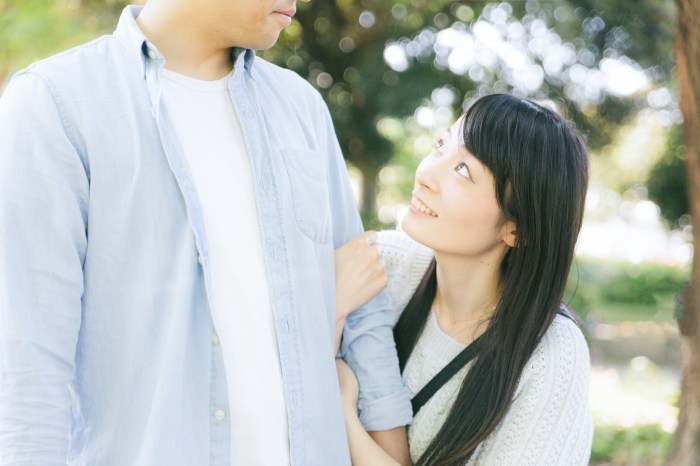Japanese Dating: Exploring Love and Culture

Japanese dating is a fascinating blend of traditional values and modern influences, offering a unique glimpse into Japanese society and culture. From the concept of “amae” to the intricacies of online dating platforms, navigating the Japanese dating scene requires understanding the cultural nuances that shape romantic relationships.
This exploration delves into the complexities of Japanese dating, examining cultural expectations, popular dating methods, and the evolution of relationships in a rapidly changing world. Whether you’re curious about Japanese dating customs, considering online dating in Japan, or simply interested in understanding the diverse tapestry of love in this captivating country, this guide offers insights and perspectives on the unique landscape of Japanese dating.
Cultural Nuances in Japanese Dating

Japanese dating is influenced by a unique blend of traditional values and modern influences. Understanding these cultural nuances can provide valuable insights into the complexities of dating in Japan.
The Role of Tradition and Societal Expectations
Traditional values and societal expectations play a significant role in shaping Japanese dating practices. Dating is often viewed as a serious step towards marriage, and there’s a strong emphasis on finding a compatible partner who will contribute to the family unit.
This can lead to a more conservative approach to dating compared to some Western cultures.
- Arranged marriages: While not as prevalent as in the past, arranged marriages still exist in Japan, particularly in rural areas or within certain social circles. These arrangements often involve family members or matchmakers facilitating introductions between potential partners.
- Importance of family approval: Family approval is crucial in many Japanese relationships. Couples often seek their parents’ blessing before making any significant commitments.
- Social pressure to marry: There is societal pressure in Japan to marry and start a family, especially for women. This pressure can sometimes lead to feelings of anxiety or a sense of urgency to find a partner.
The Concept of “Amae”, Japanese dating
“Amae” is a Japanese concept that refers to a sense of dependence and indulgence in a relationship. It involves a desire to be cared for and protected by a partner, often with a degree of emotional reliance. “Amae” can manifest in various ways, such as seeking reassurance, expressing vulnerability, or expecting a partner to anticipate their needs.
- Emotional intimacy: “Amae” fosters a deep level of emotional intimacy, allowing partners to feel comfortable being vulnerable and expressing their needs.
- Mutual dependence: While “amae” might involve dependence, it is often balanced by a sense of mutual dependence, where both partners rely on each other for emotional support.
- Respect for boundaries: “Amae” is not about being demanding or controlling. It’s about expressing a desire to be cared for within a respectful and mutually beneficial relationship.
Common Dating Customs and Etiquette
Japanese dating customs and etiquette reflect the importance of politeness, respect, and consideration.
- Group dates: Group dates are common in Japan, especially during the initial stages of dating. This allows individuals to get to know each other in a less formal setting and gauge their compatibility.
- Gift-giving: Gift-giving is an important part of Japanese culture, and it’s customary to exchange gifts on special occasions, such as birthdays or anniversaries. Gifts are often chosen with care and thoughtfulness, reflecting the importance of the relationship.
- Dating expenses: Traditionally, men are expected to pay for dates in Japan. However, this custom is evolving as more women become financially independent.
- Public displays of affection: Public displays of affection are generally discouraged in Japan. Couples tend to be more reserved and subtle in their expressions of love.
Comparing Japanese Dating Practices with Other Cultures
Japanese dating practices differ significantly from those in other cultures.
- Directness vs. Indirectness: Dating in Japan often involves more indirect communication and subtle cues. For example, couples might express their feelings through actions rather than explicit words.
- Speed of relationships: Relationships in Japan tend to develop at a slower pace compared to some Western cultures. Couples often take their time to get to know each other before becoming exclusive.
- Importance of compatibility: Japanese dating culture places a strong emphasis on finding a compatible partner who shares similar values, interests, and life goals.
Online Dating in Japan
Online dating has become increasingly popular in Japan, offering a convenient and accessible way for singles to connect and find potential partners. While traditional matchmaking services still exist, online platforms have gained significant traction, providing a wider pool of potential matches and greater anonymity.
Popular Dating Apps and Websites in Japan
Several dating apps and websites have emerged as popular choices among Japanese singles. These platforms cater to various demographics and preferences, offering diverse features and functionalities.
- Pairs: Pairs is one of the most popular dating apps in Japan, known for its comprehensive profile options and advanced matching algorithms. It allows users to create detailed profiles, including their interests, hobbies, and lifestyle preferences, to find compatible matches.Pairs also offer a variety of features, such as a “Pairs Party” function that allows users to attend virtual events and interact with other members.
- Omiai: Omiai is another popular dating app in Japan, known for its focus on serious relationships and marriage. It has a strict verification process to ensure the authenticity of user-profiles and offers a variety of features, such as a “Matchmaking” service that connects users with compatible matches based on their preferences.
- Tinder: While Tinder is a global dating app, it has gained significant popularity in Japan, particularly among younger singles. It allows users to swipe through profiles and connect with those who share mutual interests. Tinder’s simplicity and ease of use have made it a popular choice for casual dating and exploring new connections.
- Zoosk: Zoosk is a global dating app that has a strong presence in Japan. It uses behavioral matchmaking technology to connect users with compatible matches based on their online activity and preferences. Zoosk offers a variety of features, such as a “SmartPick” feature that suggests potential matches based on user behavior.
Advantages of Online Dating in Japan
Online dating in Japan offers several advantages over traditional methods of finding a partner.
- Convenience: Online dating platforms provide a convenient and accessible way to connect with potential partners, allowing users to browse profiles and communicate at their own pace.
- Wide Pool of Matches: Online dating platforms offer a wider pool of potential matches than traditional methods, increasing the chances of finding someone compatible.
- Anonymity: Online dating platforms allow users to maintain a degree of anonymity, which can be particularly appealing to those who are shy or uncomfortable with traditional dating methods.
- Shared Interests: Many online dating platforms allow users to filter matches based on shared interests and hobbies, making it easier to find someone who shares similar passions.
Disadvantages of Online Dating in Japan
While online dating offers many advantages, it also has its drawbacks.
- Catfishing: Catfishing, or creating fake online profiles to deceive others, is a risk associated with online dating.
- Shallow Connections: Online dating can sometimes lead to shallow connections, as users may focus on superficial aspects of a person’s profile rather than their personality and values.
- Pressure to Present an Idealized Self: Online dating can create pressure to present an idealized version of oneself, leading to unrealistic expectations and disappointment.
- Safety Concerns: As with any online platform, there are safety concerns associated with online dating, such as the potential for harassment or stalking.
Unique Features and Functionalities of Japanese Dating Platforms
Japanese dating platforms often incorporate unique features and functionalities that cater to the specific cultural nuances of dating in Japan.
- Compatibility Tests: Many Japanese dating platforms use compatibility tests to match users based on their personality traits and values.
- Group Dating Events: Some platforms organize group dating events, providing opportunities for users to meet potential partners in a social setting.
- “Concierge” Services: Some platforms offer “concierge” services, where users can request assistance with finding a compatible match or navigating the dating process.
- “Matchmaking” Services: Some platforms offer “matchmaking” services, where professional matchmakers connect users with compatible matches based on their preferences and criteria.
Examples of Successful Online Dating Stories in Japan
There are numerous examples of successful online dating stories in Japan, where couples have found love and happiness through these platforms.
“I met my husband on Pairs. We had a lot in common, and we hit it off immediately. We’ve been married for three years now, and we’re very happy.”
Aiko, 32, Tokyo
“I was hesitant to try online dating, but I’m so glad I did. I met my girlfriend on Omiai, and we’ve been together for two years. She’s the best thing that’s ever happened to me.”
Kenji, 28, Osaka
Romantic Relationships in Japan

Romantic relationships in Japan are characterized by a unique blend of traditional values and modern influences, resulting in a complex and nuanced approach to love and commitment.
Stages of a Typical Romantic Relationship
The progression of a romantic relationship in Japan often follows a set of distinct stages, marked by specific rituals and expectations. While these stages can vary based on individual preferences and cultural contexts, they provide a general framework for understanding the dynamics of Japanese dating.
- Initial Encounters and Attraction: The initial stage involves casual encounters, often facilitated by friends or social gatherings. This phase is characterized by a gradual process of getting to know each other, with a focus on mutual respect and politeness.
- Confession and Dating: A pivotal moment in Japanese dating is the “confession,” where one person expresses their feelings for the other. This declaration of love is often a significant step in the relationship and can lead to a formal commitment.
- Courtship and Commitment: Following the confession, couples enter a period of courtship, which involves frequent dates and shared experiences. During this stage, they solidify their bond and explore their compatibility.
- Engagement and Marriage: If the relationship progresses successfully, couples may decide to get engaged. This decision is often discussed with family members, and the engagement period typically involves planning for the wedding.
- Marriage and Family Life: Marriage in Japan is a significant milestone that signifies a commitment to a shared future. Couples often strive to maintain a balance between their individual needs and the expectations of their families.
Communication and Emotional Expression
Communication in Japanese relationships is often subtle and nuanced, with a strong emphasis on indirectness and nonverbal cues.
- Indirect Communication: Japanese individuals often rely on implicit understanding and context, rather than explicit statements. They may express their feelings through subtle gestures, facial expressions, or shared experiences.
- Emotional Restraint: Open displays of affection and emotion are generally considered less common in Japanese relationships. Instead, emotional expression is often reserved for close friends and family members.
- Importance of Harmony: Maintaining harmony and avoiding conflict is highly valued in Japanese culture. This emphasis on harmony can sometimes lead to suppressing negative emotions or avoiding confrontation.
Role of Family and Friends
Family and friends play a significant role in Japanese dating and relationships.
- Family Approval: In many cases, gaining the approval of both families is considered essential for a successful relationship. This can involve seeking introductions, attending family gatherings, and building relationships with extended family members.
- Social Network Support: Friends and social circles often serve as a source of support and guidance for couples. They can offer advice, provide emotional support, and help navigate the complexities of dating and relationships.
- Shared Social Activities: Couples frequently engage in social activities with their families and friends, fostering a sense of community and shared experiences.
Types of Romantic Relationships
Japanese society embraces a variety of romantic relationship styles, reflecting the diverse perspectives and values within the country.
- Traditional Relationships: These relationships are often characterized by a strong emphasis on traditional gender roles, with the husband taking on a more dominant role and the wife focusing on homemaking.
- Modern Relationships: As Japan has modernized, more couples are embracing more egalitarian relationships, with a shared division of household responsibilities and decision-making.
- Non-Traditional Relationships: While marriage remains a significant societal norm, there is growing acceptance of non-traditional relationships, such as cohabitation and same-sex partnerships.
Challenges and Opportunities in Japanese Dating
Navigating the Japanese dating scene can be both rewarding and challenging. While Japan is known for its romantic culture, certain cultural nuances and societal expectations can make finding love a complex endeavor. Understanding these challenges and opportunities is crucial for anyone seeking romantic connections in Japan.
Cultural Differences Impacting Dating
Cultural differences play a significant role in shaping dating experiences in Japan. These differences can create both hurdles and opportunities for individuals seeking romantic connections.
- Traditional Gender Roles: Japan still maintains a traditional gender role structure, with women often expected to be more submissive and men to be more assertive. This can lead to misunderstandings and communication breakdowns, especially for those unfamiliar with these expectations.
- Emphasis on Group Harmony: Japanese culture places a strong emphasis on group harmony and avoiding confrontation. This can make it difficult to express feelings directly or initiate romantic interactions.
- Social Pressure: Social pressure to conform to societal expectations can be intense in Japan. This pressure can make it challenging for individuals to pursue relationships that deviate from traditional norms.
Common Challenges in Japanese Dating
While Japan offers a unique dating scene, individuals may encounter several challenges:
- Language Barrier: For non-Japanese speakers, the language barrier can be a significant obstacle. Communication difficulties can make it challenging to build genuine connections and express feelings effectively.
- Cultural Misunderstandings: Differences in social norms and customs can lead to misunderstandings and awkward situations. It’s crucial to be sensitive to cultural differences and learn about Japanese etiquette.
- Limited Opportunities: Compared to other countries, Japan may have fewer traditional dating opportunities, such as blind dates or social gatherings.
- Competition: The dating pool can be competitive, especially in major cities like Tokyo. This can make it challenging to stand out and find a compatible partner.
Opportunities for Finding Love in Japan
Despite the challenges, there are many opportunities for finding love and connection in Japan:
- Online Dating: Online dating platforms have become increasingly popular in Japan, offering a convenient way to meet people with similar interests.
- Social Events: Participating in social events, such as language exchange programs, hobby clubs, or volunteer activities, can provide opportunities to meet new people and potentially connect romantically.
- Openness to Foreigners: While there are some cultural differences, Japan is generally welcoming to foreigners, and many people are open to dating individuals from different backgrounds.
- Strong Sense of Community: Japan has a strong sense of community, which can foster a supportive environment for building relationships.
Advice for Navigating the Japanese Dating Scene
Here are some tips for navigating the Japanese dating scene successfully:
- Learn about Japanese Culture: Take the time to learn about Japanese customs and etiquette, including social norms, dating expectations, and communication styles.
- Be Patient and Respectful: Building relationships in Japan takes time and effort. Be patient, respectful, and understanding of cultural differences.
- Practice Active Listening: Listen attentively to your potential partner and try to understand their perspective.
- Be Open-Minded: Be open to dating individuals from different backgrounds and cultures.
- Use Online Dating Platforms: Consider using online dating platforms to expand your dating pool and meet people with shared interests.
Modern Trends in Japanese Dating
Japan’s dating landscape is transforming, influenced by globalization, technology, and evolving societal values. This evolution has led to new dating practices and a shift in perceptions regarding relationships and marriage.
Influence of Globalization and Technology
Globalization and technology have significantly impacted Japanese dating. The increased exposure to Western dating norms and the rise of online dating platforms have created new avenues for romantic connections.
- Western Dating Norms: The influence of Western dating norms, particularly through popular media and social media, has introduced concepts like dating for fun, casual relationships, and dating apps to Japan. This has led to a more open and diverse approach to dating compared to traditional Japanese practices.
- Online Dating Platforms: Online dating platforms, such as Tinder, Pairs, and Omiai, have become increasingly popular in Japan, offering a convenient and accessible way to meet potential partners. These platforms cater to diverse preferences and allow users to connect with people who share similar interests, regardless of location.
Changing Perceptions of Relationships and Marriage
Modern Japanese society is experiencing a shift in traditional views of relationships and marriage. This shift is driven by factors such as economic pressures, changing gender roles, and a growing emphasis on personal fulfillment.
- Delayed Marriage: The average age of marriage in Japan has been steadily increasing, with many young adults prioritizing education, career development, and financial stability before settling down.
- Declining Marriage Rates: Japan has one of the lowest marriage rates in the developed world, with many people choosing to remain single or opt for non-marital cohabitation. This trend is attributed to factors like economic instability, career pressures, and a growing acceptance of alternative relationship models.
- Emphasis on Personal Fulfillment: There is a growing emphasis on personal fulfillment and self-discovery among young Japanese adults, leading to a greater focus on individual goals and aspirations. This shift has led to a more relaxed approach to marriage, with many individuals prioritizing their happiness and independence.
Emerging Trends in Japanese Dating
The changing landscape of Japanese dating has given rise to several emerging trends, reflecting the evolving values and priorities of modern Japanese society.
- Salaryman Dating: This trend involves women specifically seeking partners who are financially stable and work in high-paying corporate jobs. This preference is often driven by a desire for financial security and a comfortable lifestyle.
- Non-Marital Cohabitation: The increasing acceptance of non-marital cohabitation, or “living together” as a couple without getting married, reflects a shift in attitudes towards traditional family structures. This trend is fueled by a desire for greater autonomy and flexibility in relationships.
Examples of Modern Trends Shaping the Future of Japanese Dating
Modern trends are shaping the future of Japanese dating, influencing how people connect, build relationships, and define their romantic aspirations.
- Dating Apps and Social Media: Dating apps and social media platforms have become integral to the dating process, offering a convenient way to meet potential partners and navigate the complexities of modern relationships.
- Changing Gender Roles: The evolving gender roles in Japanese society have led to a more egalitarian approach to dating and relationships. Women are increasingly pursuing careers and financial independence, leading to a shift in traditional expectations regarding dating and marriage.
- Focus on Compatibility: There is a growing emphasis on finding partners who are compatible with their values, interests, and lifestyles. This focus on compatibility reflects a desire for meaningful and fulfilling relationships.
Final Conclusion

Dating in Japan is a journey of cultural discovery, where traditional values intertwine with modern trends. From navigating cultural expectations to embracing the unique dynamics of online dating, finding love and connection in Japan requires an open mind and a willingness to explore the diverse tapestry of relationships.
Whether you’re seeking a traditional romance or a modern connection, understanding the nuances of Japanese dating can pave the way for meaningful encounters and enriching experiences.
Comments are closed.